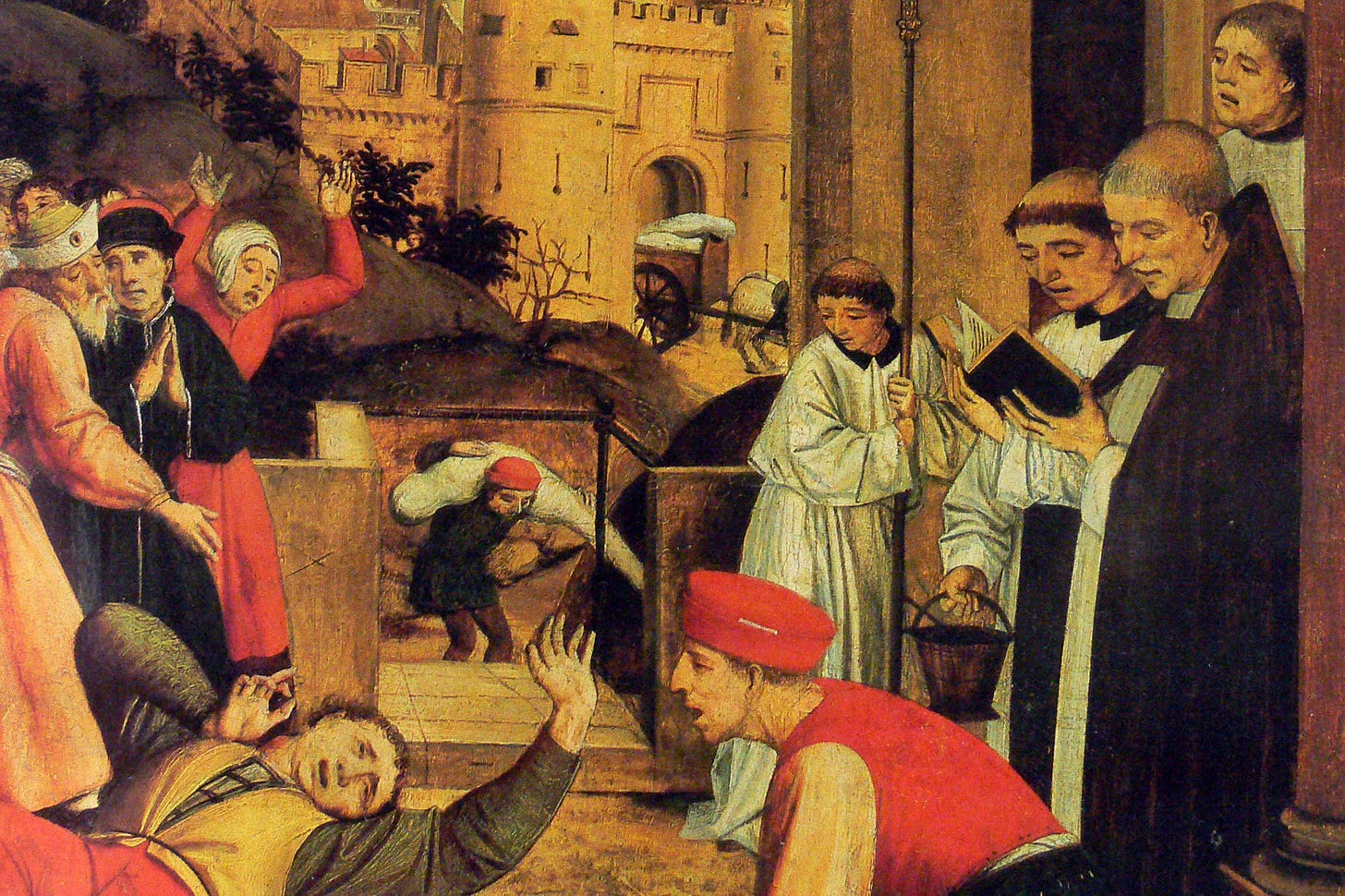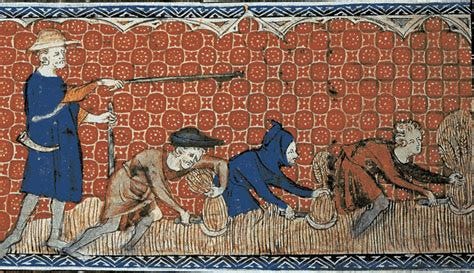Start dismantling the control grid
By rejecting the narratives of virology and the disproven germ hypothesis
Hello, friends. The topic for this week is a pretty big one, and it’s the most important reason, for me, why we need to know that viruses don’t exist. “Viruses” and virology, the disproven germ hypothesis, and contagion are the currently most popular iteration of an age-old control narrative whose purpose is to create a false paradigm—a false reality, if you will—about what human beings are and what kind of world this is. The sole reason for it is control. And we can start to dismantle this false paradigm of who and what we are by being clear in our minds that “viruses” are fictional and the health narrative of the past four years based on their existence has been completely fraudulent.
I realize that this may seem like a stretch—that whether or not viruses exist is a key piece of information in how we understand ourselves as human beings. Stay with me, because I hope to convince you that the disproven germ hypothesis narrative is a glaring example of a whole range of efforts by the would-be rulers of the universe to gain our consent to being ruled by them. And that throwing aside the idea that we are potential walking victims of random attack by tiny predators can also help us throw aside other narratives of control, even ones that humans have allowed themselves to be governed by for centuries and perhaps millennia.
Since time immemorial, people have asked fundamental existential questions: “Who am I?” “Why am I here?” and “What is this place anyway?” Fields of inquiry such as philosophy, religion, art, and science are framed around answering these questions. Their answers give us foundations for living our everyday lives in a familiar milieu, so we don’t have to start all over understanding what’s going on every day when we wake up. And, of course, these answers can be 100% correct, or they can be completely wrong. Or any increment in between.
Dominant discourses in these fields of thought have given us answers such as: you are nothing but a thinking brain (“I think therefore I am”); you are fundamentally flawed and need to be saved from yourself; this world, both humans and nature, is a dangerous and threatening place that you need protection from; there is no inherent meaning in the universe or your life, only randomness.
Social structures like the class system, consumer culture, and patriarchy provide answers that we are supposed to assume have arisen organically out of human interaction. Some humans are born to rule over others; competition is the main driver of evolution; humans are greedy and selfish and don’t care about Earth or fellow humans; without civilization we would be raping and killing each other all the time (this one is from Civilization and its Discontents, by Sigmund Freud). Some of these have a current iteration: the false narratives of overpopulation and climate change (“we have met the enemy and he is us”).
Then, of course, there is the health/medical narrative, whose roots go far back in time. This institutional field of thought teaches us that we are subject to random attack by invisible entities, doctors are smarter than we are, and we need them in order to survive.
The basic message of all these narratives is that you and I, unless we are members of the small group of those with power in any given era, are weak, stupid, bad, and/or incompetent, and therefore in need of being controlled—for our own good, as well as the good of society at large.
What I have seen over the past four years is that that virology and the disproven germ hypothesis are part of the same continuum. They teach us that life is random, that as humans we are born to be the “prey” of tiny microorganisms who will kill us if they can, and that we need interventions from outside us, i. e., from health professionals, to survive these random body invasions. Like the class system and the religious view that humans are flawed, the narratives of the disproven germ hypothesis and virology tell us we have no agency in the matter of our health or lack thereof, and that others who know better than us are the only ones who can protect us from the danger waiting around every corner. And in all these narratives, those who are smarter will only help us if we submit to their control, be it that of the noble in the manor (“serve me or I won’t protect you”), the priest in the confessional (“do these penances or God will smite you”), or the doctor in the clinic (“follow my directions or you will continue to be sick”).
We have seen in the past four years how fear of a “virus” has been used to get humanity to comply with social control measures that we would never agree to under normal circumstances—forced vaccination; staying away from loved ones and friends; covering our faces and the faces of our small children with pieces of paper that impede breathing; and giving away our rights to freedom of movement and freedom of speech, among others, through travel bans and extensive censorship. All this purportedly to keep us “safe” because we are incapable of keeping ourselves safe.
We have seen these social control mechanisms being imposed by health professionals, bureaucrats, academics, and politicians, and enforced by law enforcement as well as officious individuals in stores, waiting rooms, trains, and many other public places. We have seen the substrate of authoritarianism beneath the surface of many on the political and social left, in their stated willingness to shame, imprison, force-vaccinate, and even murder the unvaccinated, who were called “uncompassionate,” “socially irresponsible,” and “dangerous.”
Of course, issues of life and death, which is what people believe “pandemics” and “deadly viruses” to be, make it pretty easy to convince disempowered people to give up their freedom for safety. We saw the same dynamic after 911, when terrorism was the existential threat used to convince us we needed to allow intrusive surveillance and give extra powers to the government to keep us “safe.” It’s fairly easy to see now, with the distance of more than two decades, how that event was managed (whether you think it was done on purpose or just exploited) to permanently increase levels of control over everyone in the world. Of course, exactly the same thing has happened during the global crisis of “Covid,” and the control is now tighter than ever.
I believe we are living in an extraordinary moment in the history of this planet, when the lie of all these narratives is becoming evident—narratives whose purpose has been controlling human self-understanding and behavior. Virology, the disproven germ hypothesis, and contagion have been revealed in the past four years as blatant lies whose purpose of increasing social control is now excruciatingly obvious. This has lifted the veil on, not only their own fraudulence, but that of all the other control narratives down through history. And as our eyes open to the transparently control-oriented medical narrative of the plandemic we are being invited to question the reasons for the application of so much control over all aspects of humans’ lives for such a long time.
This is both a very exciting and a rather dark topic to talk about. Our ancestors for hundreds of generations suffered horribly under these regimes (the brutal treatment of enslaved people, the burning of herbalists and witches, the slaughter of indigenous peoples in the way of civilizational “progress,” as well as the everyday application of fear, coercion, and violence throughout the world and throughout history). Our ancestors living in previous eras didn’t have much if any opportunity to see the truth of this. But we do.
And it’s critically important that we do, for two reasons. One, the social control is only going to continue tightening until the doors of the digital prison slam shut. This is what the plandemic has been all about from the start. I personally do not think the ultimate plan by the billionaires, bankers, and their nefarious puppeteers to enslave us for eternity is going to succeed. Nevertheless, they will continue to try as long and as hard as they can, and that will continue to result in more horrific suffering and death as long as it goes on. As long as we let it go on. And they are getting very close. It’s important that we see through their lies and say a resounding “NO!”
But an equally important and much more exciting reason for us to see virology as part of the web of control narratives that have been woven around humans on this planet for so long, is that it gives us an unprecedented opportunity to see the truth of who and what we are—to discover existential answers that are not filtered through the controlling lenses of all the familiar narratives, but rather arise from within our own being and our own experience of life.
What I’m talking about is that we are designed physically to live at least 120 years in a state of good health. That the world is a place of abundance, not scarcity, and there need be no hunger, poverty, disease, or lack. That “human nature” is peaceful, cooperative, kind, and fair, hardwired for compassion. That we have the capacity to harvest and use energy from the sun, from the ether, and from our own bodies’ production. And that our most human, our most essential capacity is to create—individual works of art as well as worlds. And this is just the beginning of what we are and can do.
Have you ever looked around and wondered, is this all there is? Is life supposed to be about forced schooling, followed by working 9 to 5 til your 65, then watching Netflix until you go into the home? Seeing neverending war, organized crime, child trafficking, 5G towers on every corner, all of which is “just the way it is?” Do you yearn for a different world, thinking there must be better ways for people to live with each other and other beings, and wondering why there is so much suffering that seems unnecessary and problems that could be solved but never are?
We get the message that what we yearn for is just fantasy, “unrealistic,” impossible, “utopian.” It’s just our overactive imagination. We may get a sympathetic pat on the back if we express such dissatisfaction with the way things are or share our visions of how it could be, or we might get attacked for it. I submit that these yearnings arise from the part of us that knows we are living in a false paradigm, that things can and should be different. And that both the sympathetic pats and the attacks serve to push that part back down so we resume our place as a cog in the machine.
What if the nefarious beings that control this world, though they appear to be human, may not be? Or, if they are human, in “selling their souls to the devil” for power they have actually diminished their own humanity? What if they lack the creative capacity of full human beings, and their control regime serves the purpose of turning our creative capacity to their purposes, while preventing us from even knowing that we have that capacity in the first place? That they do this both so we will not utilize our creativity to start building that world we yearn for, and instead we will continue to recreate the disempowering false paradigm of reality that they have convinced us is real? Wouldn’t that be the best reason of all for them to enforce control narratives on us?
I haven’t gotten as far as I had hoped in expressing why it is so exciting to question everything, starting with the reality of “viruses.” What I will close this column with, then, is to invite you to start your exploration of what a human being is—what you are—by looking into the vast field of possible answers to the question, “If it’s not ‘viruses’ and ‘germs,’ then why do we get sick?” I’ve suggested a few of the answers I’ve come up with in previous posts here—‘Germ theory’ hooks us to drugs and needles, How can they not be connecting the dots?, and Why our terrain is the key to health. These are just places to start.
You can find further food for thought by watching any of the videos on Dr. Sam Bailey’s Substack or almost anything on Dr. Tom Cowan’s Odysee channel. If you love to read, check out Dawn Lester and David Parker’s prodigious work, What Really Makes You Ill: Why Everything You Thought You Knew About Disease is Wrong. If you are an aural learner or enjoy listening to podcasts as a way to take in information, try Dr. Melissa Sell’s podcast on German New Medicine for another fascinating set of ideas about where “illness” comes from and how we can take charge of our own health. (And if any of this is new to you, prepare to have your mind blown.)
There is so much we don’t know, primarily because it has been kept from us and because we have been lulled into believing a tissue of stories about ourselves, including our bodies. It is somewhat destabilizing to realize that so much of what we think we know about ourselves and the world is not true. But the exciting part is that we now have the opportunity to find out what IS true. And I can guarantee you that the truth is much bigger and better and more beautiful, much more fascinating and awesome, and SO much more empowering than the lies.
Stay tuned for more exploration of truth versus lies next week. Thanks for reading.











Hi Betsy, from Andy, in a small part of England known as "The Black Country".
https://en.wikipedia.org/wiki/Black_Country
I also refer to "germ theory" as "the disproven germ hypothesis".
That article was deep, good, but deep.
Starting with the question; "why do we get sick?" My current thinking is that (barring natural disasters) all diseases are simply diseases of civilization. I'm using the word "civilization" to describe "organized densely populated settlements, with people subjugating nature".
If I add; "& other people" onto that description we seem to be on a similar page regarding society, however I'm not that optimistic regarding "waking other people up" as it seems they do love their servitude. It was Gothe who wrote "The greatest enemy of freedom is a happy slave".
Here's a precis of a discussion Jeff Strahl had somewhere on substack, it articulates what I see around me;
"Lots of people are idiotized by living in modern society, unable to pursue a coherent thought for more than a few seconds or retain information for more than five minutes, but worse are those who just don't want to hear anything which disturbs them and challenges what they know (the mythology that was embedded deep within during their formative years), or challenges those upon whom they depend for; "the truth".
These people habitually choose not to think critically, but instead choose to believe whatever they're told to believe.
In their world saying the, "right thing" matters more than intellectual honesty."
Those who choose to live outside the control grid will manage to, but they will have to learn from history that they risk violence from the state as the 17th century "Diggers" & 20th century "Crusties" found to their cost.
As you correctly state Betsy; "Question everything". And to paraphrase Tom Cowan; "Question what you know & HOW you know it. Think for yourself & think clearly. It's better to know something, rather than to simply believe it".